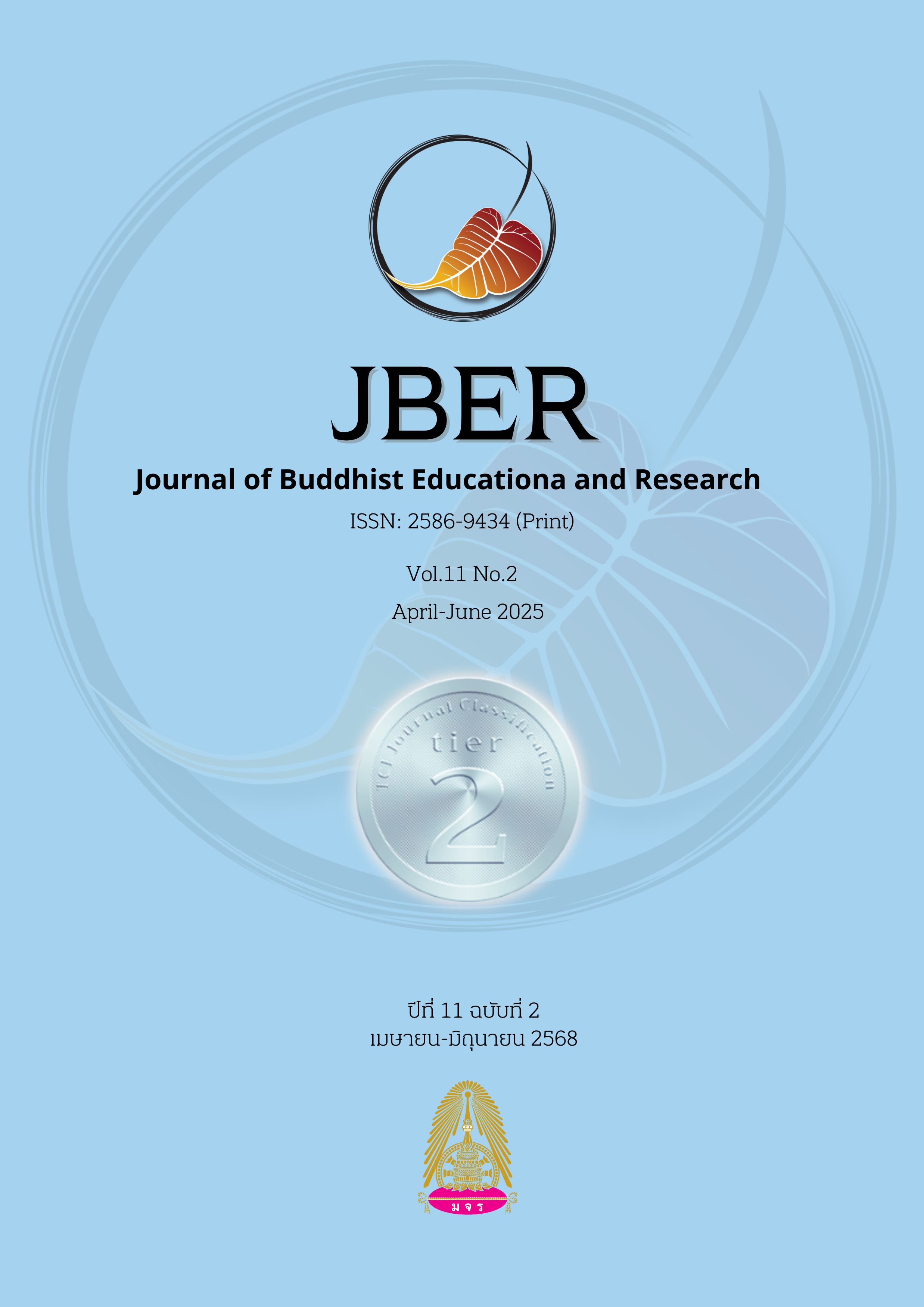Learning Management Based on Cognitive Flexibility Theory to Enhance Mathematical Communication Ability and Satisfaction of Grade 8 Students
Keywords:
Cognitive Flexibility Theory, mathematical communication ability, satisfactionAbstract
The purposes of this research were to 1) compare the mathematical communication ability of Grade 8 students before and after learning management based on the Cognitive Flexibility Theory and 2) examine the satisfaction of Grade 8 students toward learning management based on the Cognitive Flexibility Theory. The sample group in this study consisted of Grade 8 students in the first semester of the academic year 2024, selected through Cluster Random Sampling, using a classroom as the unit of selection. One classroom was randomly chosen, consisting of 30 students. The research instruments used in this study included 1) two lesson plans based on the Cognitive Flexibility Theory, with a total duration of six hours, 2) a mathematical communication ability test, and 3) a satisfaction questionnaire on learning management based on the theory. The statistical methods used for data analysis were mean (x̄), standard deviation (SD), and t-test Dependent. The research findings indicated that the students who learned through the theory of cognitive flexibility demonstrated a statistically significant improvement in mathematical communication abilities at the .05 level and expressed the highest level of satisfaction with the learning model.
References
ถนอมพร เลาหจรัสแสง. (2541). คอมพิวเตอร์ช่วยสอน. กรุงเทพฯ: ศูนย์หนังสือแห่งจุฬาลงกรณ์มหาวิทยาลัย.
ประภาวดี เทพทอง. (2545). การพัฒนาผลสัมฤทธิ์ทางการเรียนคณิตศาสตร์ของนักเรียนชั้นประถมศึกษาปีที่ 5 ด้วยการสอนโดยใช้กระบวนการสื่อสาร (วิทยานิพนธ์ปริญญามหาบัณฑิต สาขาวิชาประถมศึกษา). จุฬาลงกรณ์มหาวิทยาลัย.
เอื้อจิตร พัฒนจักร, ไมตรี อินทร์ประสิทธิ์, & นฤมล อินทร์ประสิทธิ์. (2551). การศึกษาการสื่อสารทางคณิตศาสตร์ของนักเรียนในกระบวนการพัฒนาวิชาชีพครูที่ใช้การศึกษาชั้นเรียน.
Chaijaroen, S., Deejring, K., & Samat, C. (2018). Cognitive flexibility of students learning with constructivist learning environment model enhancing cognitive flexibility in higher education. In J. C. Yang et al. (Eds.), Proceedings of the 26th International Conference on Computers in Education. Asia-Pacific Society for Computers in Education.
Deejring, K., & Chaijaroen, S. (2012). The constructivist learning environments model enhancing cognitive flexibility for higher education: Validation phase. Procedia - Social and Behavioral Sciences, 46, 3764–3770. https://doi.org/10.1016/j.sbspro.2012.06.143
Emori, H. (2005). The workshop for young mathematics educators in Thailand 2005: Building up the research.
Jonassen, D. H. (1999). Designing constructivist learning environments. In C. M. Reigeluth (Ed.), Instructional design theories and models: A new paradigm of instructional theory (Vol. 2, pp. 215–239).
National Council of Teachers of Mathematics. (1989). Curriculum and evaluation standards for school mathematics. Reston, VA: National Council of Teachers of Mathematics.
Spiro, R. J., Coulson, R. L., Feltovich, P. J., & Anderson, D. (1988). Cognitive flexibility theory: Advanced knowledge acquisition in ill-structured domains. In V. Patel (Ed.), Proceedings of the 10th Annual Conference of the Cognitive Science Society (pp. 375–383). Hillsdale, NJ: Erlbaum.
Downloads
Published
How to Cite
Issue
Section
Categories
License
Copyright (c) 2025 Journal of Buddhist Education and Research (JBER)

This work is licensed under a Creative Commons Attribution-NonCommercial-NoDerivatives 4.0 International License.





